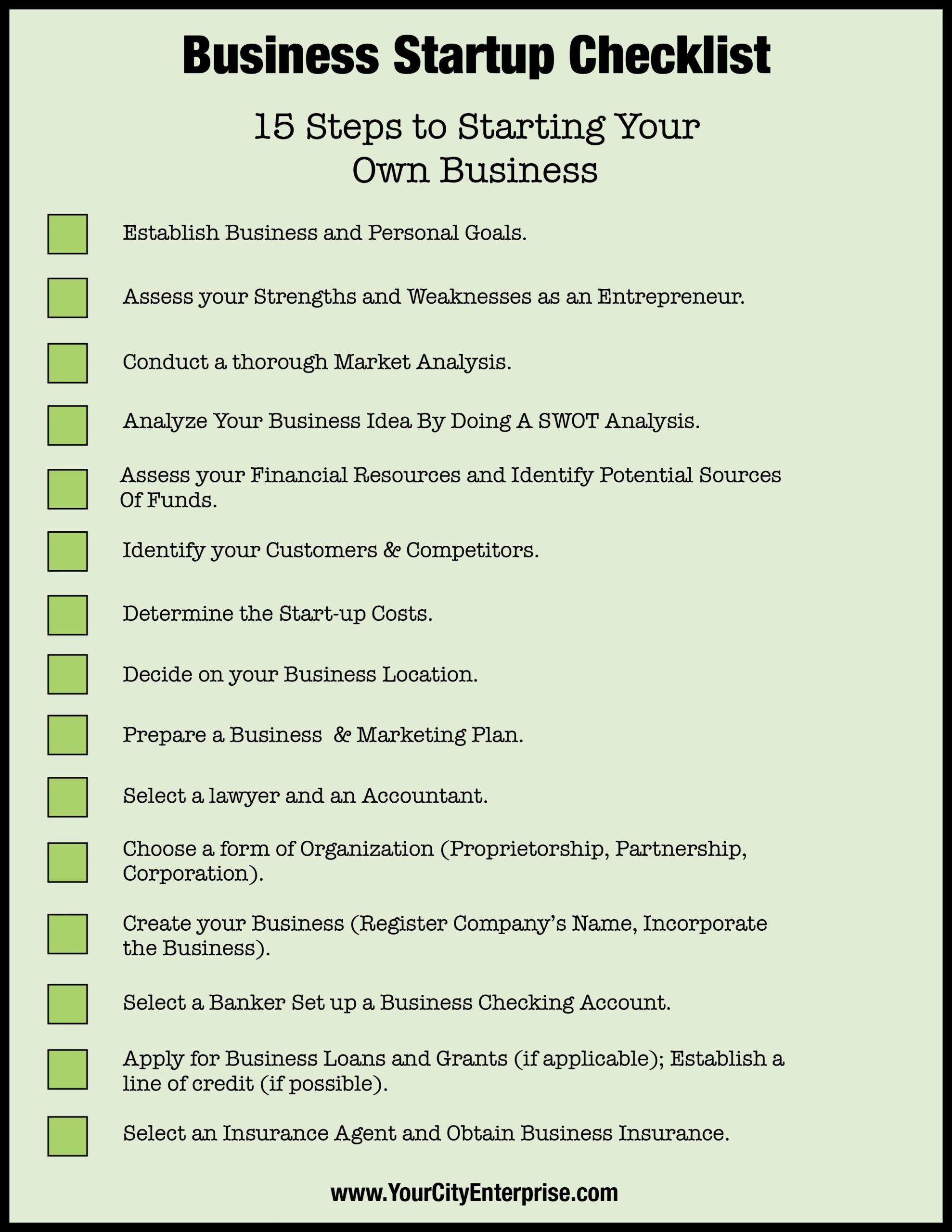Starting a new business can be an exciting and challenging venture. There are many things to consider and tasks to complete before launching your startup. To ensure that you don’t miss any important steps, we have created the ultimate startup business checklist.
This comprehensive guide will walk you through the essential tasks and considerations for starting a successful business.
1. Define Your Business Idea and Target Market
Before diving into the nitty-gritty details of starting a business, it is crucial to have a clear understanding of your business idea and target market. Ask yourself the following questions:
- What problem does your business solve?
- Who are your target customers?
- What makes your product or service unique?
- What is the size of your target market?
By answering these questions, you will gain a better understanding of your business and its potential for success.
2. Conduct Market Research
Market research is a vital step in the startup process. It helps you understand your industry, competitors, and target customers. Here are some key aspects to consider during market research:
- Identify your competitors and analyze their strengths and weaknesses.
- Understand the demand for your product or service in the market.
- Identify trends and opportunities in the industry.
- Conduct surveys or interviews to gather feedback from potential customers.
Market research will provide valuable insights that will help you make informed decisions and develop a winning business strategy.
3. Create a Business Plan
A business plan acts as a roadmap for your startup. It outlines your goals, target market, financial projections, and marketing strategies. Here are the key components of a business plan:
- Executive summary: A brief overview of your business.
- Company description: Detailed information about your business, its mission, and vision.
- Market analysis: A comprehensive analysis of your industry, competitors, and target market.
- Product or service description: Detailed information about your offerings and how they solve customer problems.
- Marketing and sales strategy: Your plans for reaching and attracting customers.
- Financial projections: Projected revenue, expenses, and profitability.
- Operational plan: How your business will operate on a day-to-day basis.
- Management team: Information about the key members of your team and their roles.
A well-written business plan will not only serve as a guide for you but also attract potential investors and lenders.
4. Register Your Business
Once you have a solid business plan in place, it’s time to register your business. The specific requirements vary depending on your location and business structure. Here are some general steps to follow:
- Choose a business name and check its availability.
- Register your business with the appropriate government authorities.
- Obtain any necessary permits or licenses.
- Register for taxes, including income tax and sales tax.
By registering your business, you establish its legal identity and ensure compliance with local regulations.
5. Secure Funding
Starting a business often requires financial resources. There are various options for securing funding, including:
- Bootstrapping: Financing your business with personal savings or revenue generated from the business.
- Small business loans: Applying for a loan from a bank or financial institution.
- Angel investors: Seeking investment from individuals who provide capital in exchange for equity.
- Venture capital: Obtaining funding from venture capital firms in exchange for equity.
- Crowdfunding: Raising funds from a large number of people through online platforms.
Consider your funding needs and explore the various options available to determine the best fit for your startup.
6. Set Up Your Business Operations
Setting up your business operations involves several key tasks. Here are some important steps to consider:
- Choose a business location: Find a physical location for your business, whether it’s a storefront, office space, or a home office.
- Set up a legal structure: Decide on the legal structure for your business, such as a sole proprietorship, partnership, LLC, or corporation.
- Open a business bank account: Separate your personal and business finances by opening a dedicated business bank account.
- Set up accounting and bookkeeping systems: Implement a system for tracking your business income and expenses.
- Establish a website and online presence: Create a professional website and set up social media accounts to promote your business.
By taking care of these operational tasks, you will ensure that your business is set up for success.
7. Develop a Marketing Strategy
A well-crafted marketing strategy is essential for attracting customers and growing your business. Consider the following elements when developing your marketing strategy:
- Identify your target audience and their preferences.
- Create a brand identity that resonates with your target market.
- Develop a content marketing plan to establish your expertise and attract customers.
- Utilize social media platforms to engage with your audience and build brand awareness.
- Invest in online advertising to reach a wider audience.
Remember to continuously monitor and evaluate the effectiveness of your marketing efforts to make necessary adjustments.
8. Build a Strong Team
As your business grows, you may need to expand your team. Hiring the right people is crucial for the success of your startup. Consider the following when building your team:
- Clearly define the roles and responsibilities for each position.
- Screen candidates thoroughly to ensure they have the necessary skills and qualifications.
- Consider cultural fit and team dynamics when making hiring decisions.
- Provide ongoing training and development opportunities to support employee growth.
A strong team will contribute to the success and growth of your startup.
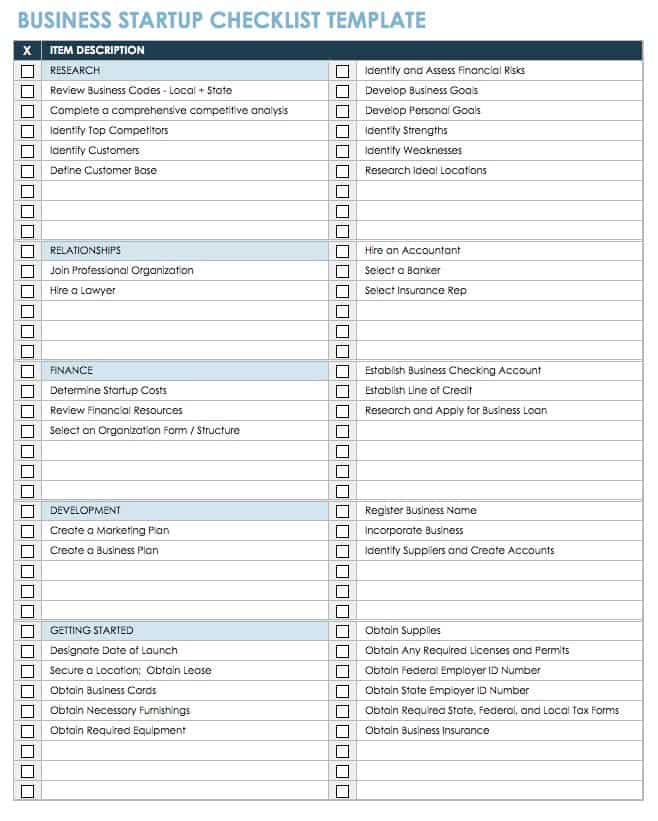
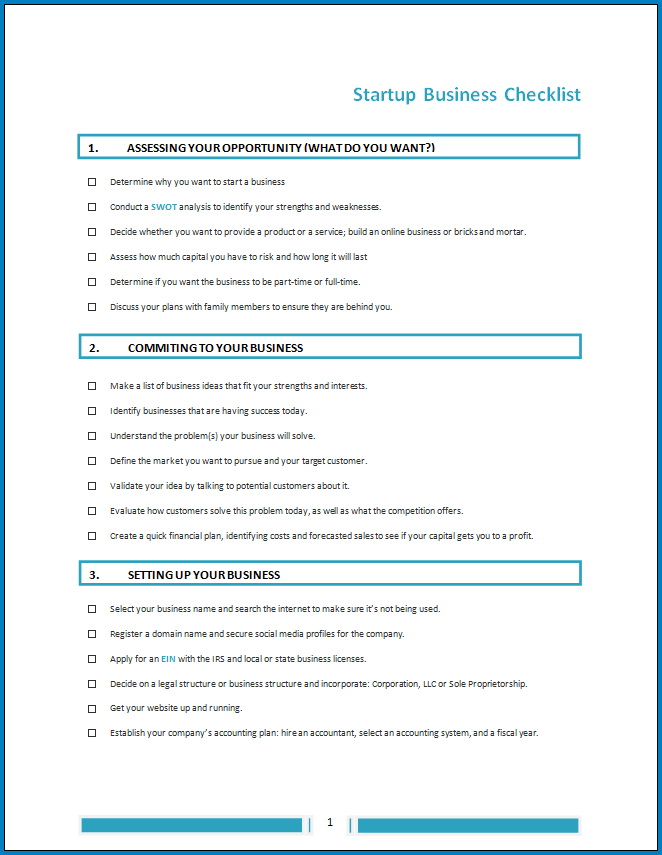
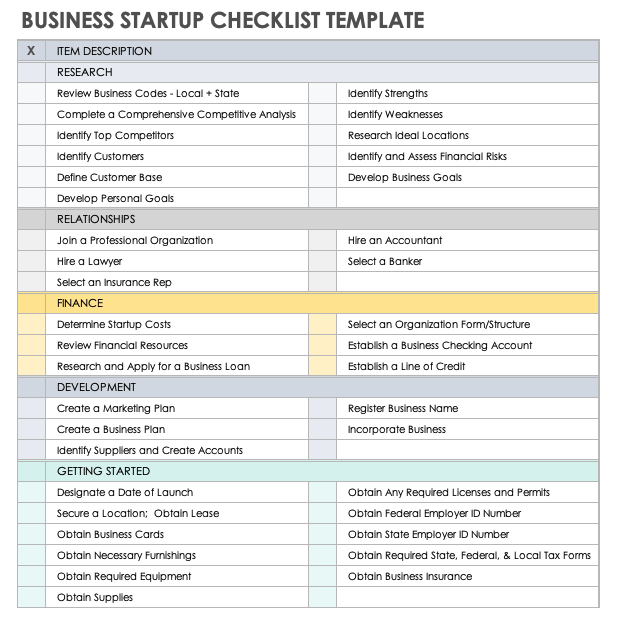
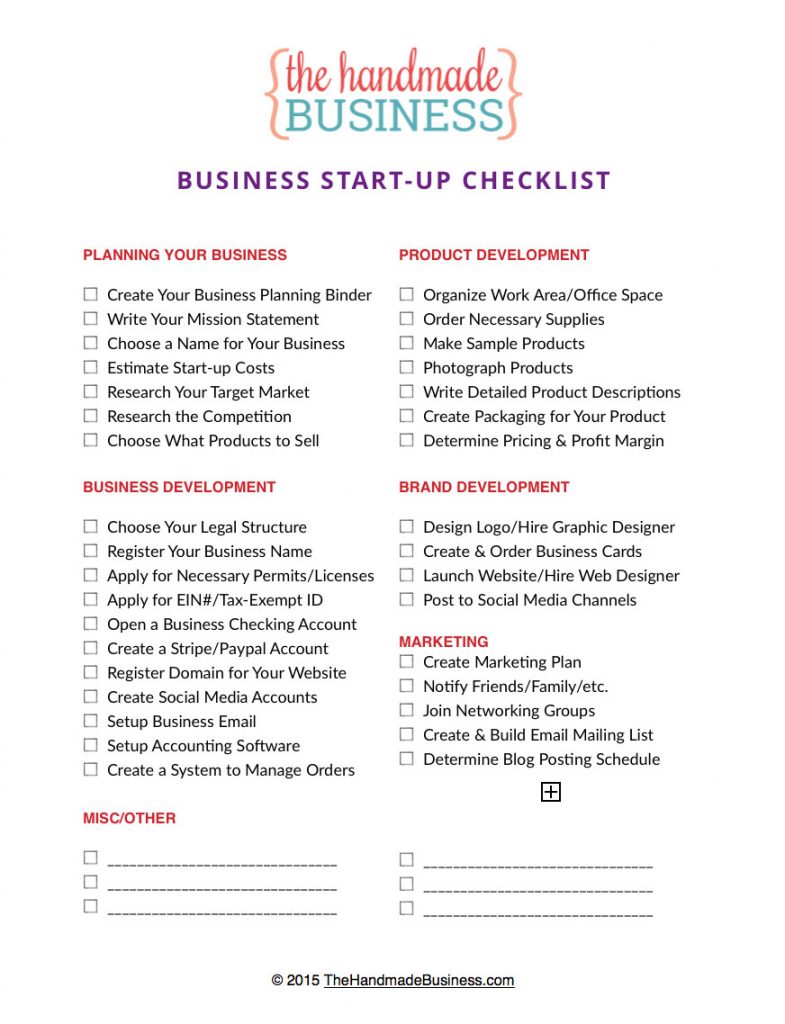
Conclusion
Starting a new business can be overwhelming, but with a well-structured plan and checklist, you can navigate the process successfully. This ultimate startup business checklist covers the essential steps to take when starting a business. By following these guidelines and staying organized, you can increase your chances of building a thriving startup.
Startup Business Checklist Template Word – Download
